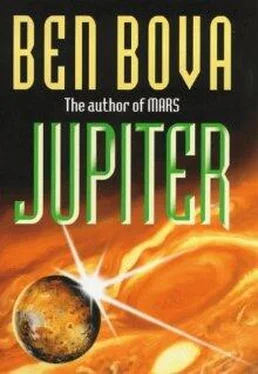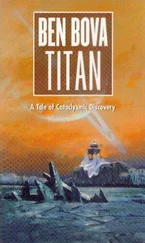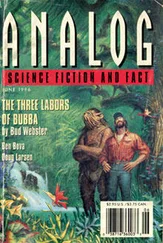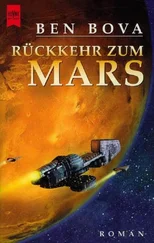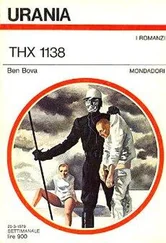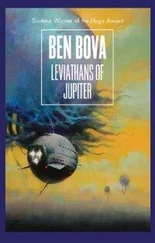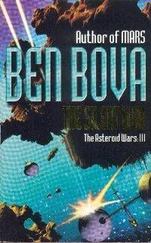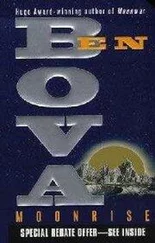Ben Bova - Jupiter
Здесь есть возможность читать онлайн «Ben Bova - Jupiter» весь текст электронной книги совершенно бесплатно (целиком полную версию без сокращений). В некоторых случаях можно слушать аудио, скачать через торрент в формате fb2 и присутствует краткое содержание. Год выпуска: 2000, ISBN: 2000, Издательство: Hodder & Stoughton, Жанр: Космическая фантастика, на английском языке. Описание произведения, (предисловие) а так же отзывы посетителей доступны на портале библиотеки ЛибКат.
- Название:Jupiter
- Автор:
- Издательство:Hodder & Stoughton
- Жанр:
- Год:2000
- ISBN:0-340-76764-2
- Рейтинг книги:4 / 5. Голосов: 1
-
Избранное:Добавить в избранное
- Отзывы:
-
Ваша оценка:
- 80
- 1
- 2
- 3
- 4
- 5
Jupiter: краткое содержание, описание и аннотация
Предлагаем к чтению аннотацию, описание, краткое содержание или предисловие (зависит от того, что написал сам автор книги «Jupiter»). Если вы не нашли необходимую информацию о книге — напишите в комментариях, мы постараемся отыскать её.
Jupiter — читать онлайн бесплатно полную книгу (весь текст) целиком
Ниже представлен текст книги, разбитый по страницам. Система сохранения места последней прочитанной страницы, позволяет с удобством читать онлайн бесплатно книгу «Jupiter», без необходимости каждый раз заново искать на чём Вы остановились. Поставьте закладку, и сможете в любой момент перейти на страницу, на которой закончили чтение.
Интервал:
Закладка:
But he had seen something in that brief glimpse of the station, something that should not have been. Grant had memorized the station’s layout after months of studying it during the long trip out to Jupiter. Research Station Gold was a massive fat doughnut of a structure, more than five kilometers in diameter. It rotated once every two minutes to give its interior a spin-induced artificial gravity of almost exactly one g, so that its inhabitants would feel a comfortable Earthly gravity inside the station.
Grant had seen an additional structure sticking out from the doughnut shape, a metallic lenticular section, round and flattened like a discus, connected to the station by a single slender tube, literally poking out from the main body like a sore thumb. It should not have been there. Grant knew the schematics of Station Gold by heart; he had pored over its design details and operations manuals for months. There was no extra section hanging out on one side of the doughnut. There couldn’t be. It would unbalance the station’s spin and inevitably destabilize it so badly that it would shake the structure apart.
It could not be there, Grant knew. Yet he had seen it. He was certain of that.
He felt puzzled, almost worried, as he took the few steps that brought him to the end of the transfer tunnel. Grant had to duck slightly to get through the hatch that connected with the station itself. As he stepped through, he found himself in a small bare chamber. Its metal walls were scuffed, dull; its flooring was metal gridwork. Once it had been painted, Grant saw, but there was nothing left of the paint except a few grayish chips clinging here and there.
A tall, slim man in light-gray casual slacks and soft blue velour shirt was standing there, waiting for him with a listless, bored expression on his angular, ascetic face. Grant had never seen such a pallid complexion; the man looked almost ghostly. His hair was very light, almost white, thin and straight and hanging down to his shoulders. Despite the silvery hair, Grant guessed that the man was only slightly older than himself.
“Grant Archer?” the man asked needlessly, extending his right hand.
Grant nodded as he shifted his travelbag and took the offered hand.
“I’m Egon Karlstad,” the man said. His grip seemed measured: not too strong, not too soft.
“Good to meet you,” said Grant. He heard the hatch behind him slide shut, then a quick series of clicks and thumps as the transfer tube disconnected.
Karlstad grinned sardonically. “Welcome to Research Station Gold,” he said. “Welcome to the gulag.”
Puzzled, Grant asked, “What’s a gulag?”
“You’ll find out,” Karlstad said resignedly as he turned to lead Grant through a second hatch and into a long, wide passageway.
Gold seemed even bigger inside than it had looked from the outside. The passageway that they trudged along was spacious and even carpeted, although the carpeting seemed threadbare, badly worn. Still, after all those months of tatty old Roberts, Grant reveled in the feeling of openness and freedom. Men and women passed them, nodding their greetings or saying hello to Karlstad. He did not introduce any of them, but kept up a constant chatter about what was behind each of the doors set into either side of the corridor: fluid dynamics lab, cryogenic facility, electronics maintenance shop, other titles Grant did not understand.
Grant thought of it as a corridor, not a passageway. He was not on a ship any longer. This was a research station. Even though he knew he was walking inside a big wheel-shaped hoop, it looked and felt to Grant as if the corridor were perfectly flat and straight, that’s how big the station was. It was only off in the far distance that the corridor appeared to slope upward.
Well, he thought, at least I’ll be in reasonably comfortable surroundings. And working with real scientists.
After what seemed like a half hour, Karlstad stopped at an unmarked doorway. “This is your compartment, Mr. Archer.”
“Grant,” said Grant. “Please call me Grant.”
Karlstad made a polite little bow. “Good. And I’m Egon. My quarters are just down the passageway, two doors.” He pointed.
Grant nodded as Karlstad tapped the security pad built into the doorjamb. “You can set your own code, of course,” he said. “Just let the security office know what it is.”
The door slid open. Grant’s compartment was roomy, with a real bed instead of a bunk, a desk, table, chairs, shelves, even a compact kitchenette with its own sink and microwave unit. It was all strictly utilitarian, like a college dormitory room, not fancy or luxurious in the least. Certainly nothing in the compartment looked new or bright. Everything smelled faintly of disinfectant, even the thin gray carpeting.
“Two of the walls are smartscreens, of course,” Karlstad was saying. “That door on the right is your lavatory, the other one’s a closet.”
Grant stepped in and tossed his travelbag onto the bed. This is fine, he told himself. This is perfectly fine. I can be comfortable here.
Karlstad shut the door and left him alone in his new quarters before Grant could ask him about the strange structure jutting out from the station’s perimeter. But as he bounced on the bed to test its springiness, Grant told himself to forget about it. The people running this station wouldn’t build anything that would jeopardize their own safety, he thought. That would be crazy.
It didn’t take long for Grant to unpack his meager belongings. His clothes hardly filled a tenth of the ample closet space and bureau drawers. He sat at the desk and linked his palmcomp with the wall screen. The first thing he did was to compose a long, upbeat message to Marjorie, telling her that he had arrived safely at the station and showing her—by swiveling in his desk chair while holding the palm-size computer with its built-in video camera in his hand—how spacious and comfortable his new quarters were. Then he sent an almost duplicate message to his parents, back in Oregon.
But even as he did so, the memory of that odd appendage sticking out from the station’s rim kept nagging at him. A flattened circular shape, like a fat discus. It was big, too: several hundred meters in diameter, at least. It bothered him. After sending off the message to his parents, Grant called up the station’s schematics, as he had done countless times on the long journey to Jupiter. Nothing. No reference to such a structure anywhere in his palmcomp’s files.
“Did I imagine seeing it?” Grant whispered to himself. Then he shook his head. He had seen it, he was certain of that.
He jacked into the station’s own files and pulled up the schematics. Nothing there, either. Frowning with puzzled frustration, he scrolled through the station’s files. Many of them were marked ACCESS LIMITED TO AUTHORIZED PERSONNEL. At last he found what he wanted: realtime views of the station from other satellites in orbit around Jupiter.
At first he was mesmerized by the satellite views of Jupiter itself, the ever-changing kaleidoscope of swirling, racing colors, endlessly fascinating. It took a real effort of will to concentrate on finding views of the station.
And there it was, the thick torus of dulled, pitted metal, looking small and fragile against the overwhelming background of Jupiter’s gaudy, hurtling clouds. And there was that saucer-shaped thing hanging out from one side of the station’s wheel, connected only by an impossibly slim tube.
Grant froze the image and framed the extension on the wallscreen, then asked, “Computer, pull up the schematic for the indicated image.”
No response from the computer. His palmcomp merely hummed to itself; the picture on the screen did not change. Feeling nettled, Grant pulled out the keyboard that was built into the desk and connected it to his palmcomp, then typed out his command.
Читать дальшеИнтервал:
Закладка:
Похожие книги на «Jupiter»
Представляем Вашему вниманию похожие книги на «Jupiter» списком для выбора. Мы отобрали схожую по названию и смыслу литературу в надежде предоставить читателям больше вариантов отыскать новые, интересные, ещё непрочитанные произведения.
Обсуждение, отзывы о книге «Jupiter» и просто собственные мнения читателей. Оставьте ваши комментарии, напишите, что Вы думаете о произведении, его смысле или главных героях. Укажите что конкретно понравилось, а что нет, и почему Вы так считаете.
